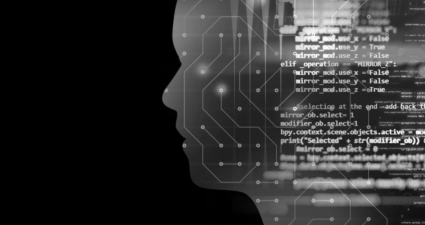
20 June 2023
Machine learning has emerged as a groundbreaking technology with the potential to revolutionize various industries. One area where it has made significant strides is healthcare. By harnessing the power of data and advanced algorithms, machine learning is transforming the healthcare industry, leading to improved diagnostics, personalized treatment plans, and more efficient operations. In this article, we will explore the application of machine learning in healthcare and delve into some of the key techniques and advancements that are shaping the future of this field.
To illustrate the practical implementation of machine learning in medical diagnostics, consider the case of skin cancer detection. By training a convolutional neural network (CNN) on a vast dataset of skin images, researchers have developed models capable of accurately identifying malignant and benign skin lesions. This technology has the potential to assist dermatologists in making more accurate diagnoses, especially in areas with limited access to specialized healthcare professionals.
Natural Language Processing (NLP) techniques play a crucial role in extracting meaningful insights from unstructured medical data, such as clinical notes and research papers. By applying NLP techniques, machine learning models can extract relevant information and identify correlations between different variables. For instance, NLP can be used to analyze patient notes and identify common adverse drug reactions, allowing healthcare providers to make informed decisions regarding medication choices.
An interesting application of machine learning in healthcare operations is the use of reinforcement learning. Reinforcement learning algorithms can learn from experience and make optimal decisions in dynamic environments. By incorporating reinforcement learning techniques, healthcare providers can automate processes such as appointment scheduling, medication dosing, and bed allocation, freeing up valuable time for healthcare professionals to focus on patient care.
Moreover, biases in the training data can lead to biased predictions, perpetuating healthcare disparities. Careful attention must be paid to ensure that machine learning algorithms are fair, transparent, and unbiased. Regular audits and continuous monitoring of machine learning models can help identify and rectify any biases that may arise.
Conclusion: Machine learning is revolutionizing the healthcare industry, paving the way for more accurate diagnoses, personalized treatment plans, and streamlined operations. Through advancements in medical diagnostics, personalized treatment, and operational efficiency, machine learning is empowering healthcare professionals and improving patient outcomes. However, it is essential to address the ethical considerations and challenges associated with this technology to ensure equitable and responsible use. As
we continue to push the boundaries of machine learning in healthcare, it is crucial to remain vigilant in safeguarding patient privacy and addressing potential biases.
Looking back at the history of technology, we can find examples of how machine learning has already made a significant impact in healthcare. In 2016, Google DeepMind collaborated with Moorfields Eye Hospital in the United Kingdom to develop an algorithm capable of diagnosing eye conditions from retinal scans. The algorithm achieved accuracy comparable to human experts and demonstrated the potential of machine learning in assisting healthcare professionals with complex tasks.
Furthermore, anecdotal evidence also highlights the transformative power of machine learning in healthcare. Consider a patient who was experiencing a prolonged and undiagnosed illness. By leveraging machine learning algorithms to analyze the patient's medical records and symptoms, doctors were able to identify patterns that led to a correct diagnosis. This timely intervention allowed the patient to receive the appropriate treatment and significantly improved their quality of life.
As the field of machine learning continues to evolve, it is essential to stay up to date with the latest advancements and techniques. The following resources provide official documentation and references related to machine learning in healthcare for further exploration:
"Machine Learning for Healthcare" by Zhiyong Lu, Maulik R. Kamdar, and Sunil Prabhakar. Link: https://www.springer.com/gp/book/9783030334615
"Deep Medicine: How Artificial Intelligence Can Make Healthcare Human Again" by Eric Topol. Link: https://www.basicbooks.com/titles/eric-topol/deep-medicine/9781541644649/
"Machine Learning in Medicine: A Practical Handbook" by Michael R. Berthold, Christian Borgelt, Frank Höppner, Frank Klawonn, and Iris Adä. Link: https://www.wiley.com/en-us/Machine+Learning+in+Medicine%3A+A+Practical+Handbook-p-9781118362081
By exploring these resources, individuals and organizations can delve deeper into the applications, techniques, and ethical considerations surrounding machine learning in healthcare.
In conclusion, machine learning is transforming the healthcare industry by enhancing medical diagnostics, enabling personalized treatment plans, and streamlining operations. The utilization of advanced techniques, such as natural language processing and reinforcement learning, empowers healthcare professionals to leverage vast amounts of data and make informed decisions. However, it is crucial to address ethical considerations, biases, and privacy concerns to ensure responsible and equitable use of machine learning in healthcare. With ongoing advancements and continued collaboration between technology and healthcare, we can expect further innovations that will improve patient care, outcomes, and ultimately, transform the future of healthcare as we know it.
JBI Training have a complete range of tech training courses, including machine learning, data science, cloud computing, analytics, and emerging technologies. The below are some suggested for you.
Python Machine Learning: This course would be ideal for individuals interested in diving into machine learning using Python, a widely used programming language in the field of data science and AI.
Data Science and AI/ML (Python): This course covers the essentials of data science and AI/ML using Python. It provides a comprehensive foundation for individuals looking to enter the field or expand their knowledge.
TensorFlow: TensorFlow is a popular deep learning framework. This course would be beneficial for individuals interested in mastering TensorFlow for building and deploying deep learning models.
Data Analytics with Power BI: Power BI is a powerful data visualization and analytics tool. This course is suitable for individuals who want to learn how to extract insights and create visually appealing dashboards using Power BI.
Azure Solutions Development and Security: This course focuses on developing secure applications and solutions on the Azure cloud platform. It would be valuable for individuals involved in cloud development and security.
Blockchain: Blockchain technology is gaining significant attention across industries. This course provides an introduction to blockchain concepts, applications, and development, making it relevant for individuals interested in this transformative technology.
All Courses currently running can be found here

CONTACT
+44 (0)20 8446 7555
Copyright © 2025 JBI Training. All Rights Reserved.
JB International Training Ltd - Company Registration Number: 08458005
Registered Address: Wohl Enterprise Hub, 2B Redbourne Avenue, London, N3 2BS
Modern Slavery Statement & Corporate Policies | Terms & Conditions | Contact Us
POPULAR
AI training courses CoPilot training course
Threat modelling training course Python for data analysts training course
Power BI training course Machine Learning training course
Spring Boot Microservices training course Terraform training course